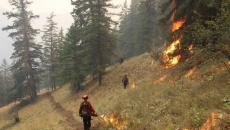Online streaming services like Netflix and Spotify are being told they must start contributing money toward local news and the production of Canadian content.
The Canadian Radio-television and Telecommunications Commission has directed foreign streamers today to pay five per cent of their annual Canadian profits into a fund.
That fund will be devoted to producing local TV and radio news, Indigenous content, French-language content, and content created by those with a diverse background.
The CRTC says the fund is expected to inject about $200 million into Canada's broadcasting system every year.
Those responsible to pay would be companies that are not affiliated with a Canadian broadcaster that make at least $25 million from Canadian broadcasting.
The new directive is meant to level the playing field between tech giants and traditional broadcasters, which already contribute to producing Canadian content.






